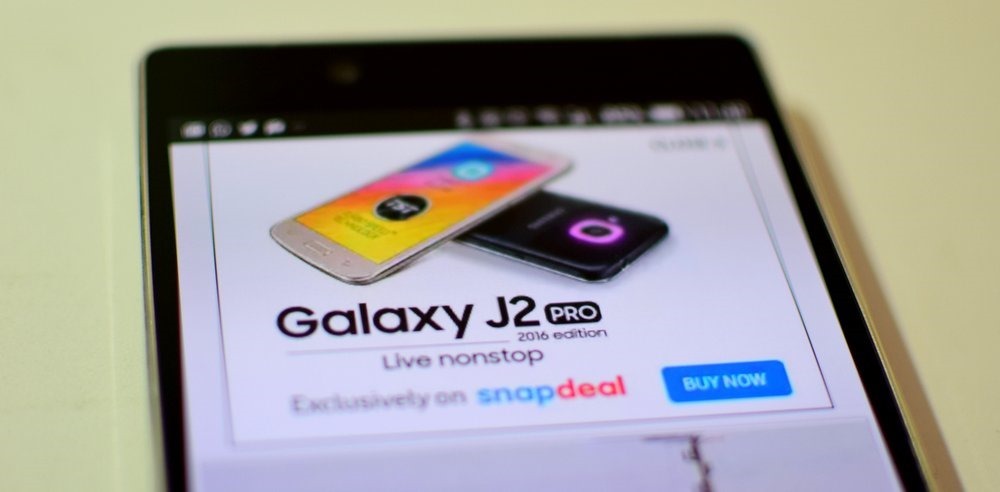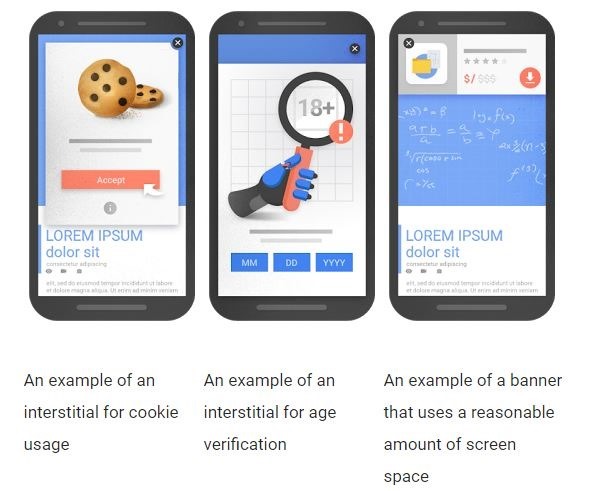Websites & Blogs Displaying Full Page Ads on Mobile Will be Penalized by Google!

We all have those specific websites we like to read through everyday, but advertisements have time and again spoiled our experience. Sometimes the ads pop-up even before displaying the content, while some websites have full page advertisements shortly after you start going through the site.
Google has now released a statement saying that such blogs and websites will be punished in terms of their page rank. Some pages show intrusive interstitials to users instead of displaying the content, which affects the indexing done by Google.
The blog reads, “Pages that show intrusive interstitials provide a poorer experience to users than other pages where content is immediately accessible. This can be problematic on mobile devices where screens are often smaller. To improve the mobile search experience, after January 10, 2017, pages where content is not easily accessible to a user on the transition from the mobile search results may not rank as highly.”
How annoying it is to first close a full page ad that pops up on your phone or other device and then access the content below. This is something very common and I have dealt with such issues since the time of smartphones.
Examples of Ads that will attract Google Penalty

However, there will be a few exceptions to the above rule as well –
- If the pop-up requests cookies or legally verify age, then that is not necessarily an advertisements and won’t be blocked
- To browse content some websites request login through a pop-up which won’t be affected in future either
- Some banners that do not cover the whole screen, in fact cover it partially and the content is still accessible to the readers
Examples that will Not attract Google Penalty

If you have seen free applications in Google Play Store, you must have seen a portion of your screen on the bottom flashing advertisements that are used to generate revenue. Such things won’t stop, and although they might spoil, they don’t necessarily hamper the user’s experience.
This is going to affect a lot of websites like Wall Street Journal, Firstpost and Times of India that display full page ads before the user has to dismiss to read the content below. Starting next year, these websites will be forced to change their ad strategies a bit to make the content more visible to their readers.
Source: Google
